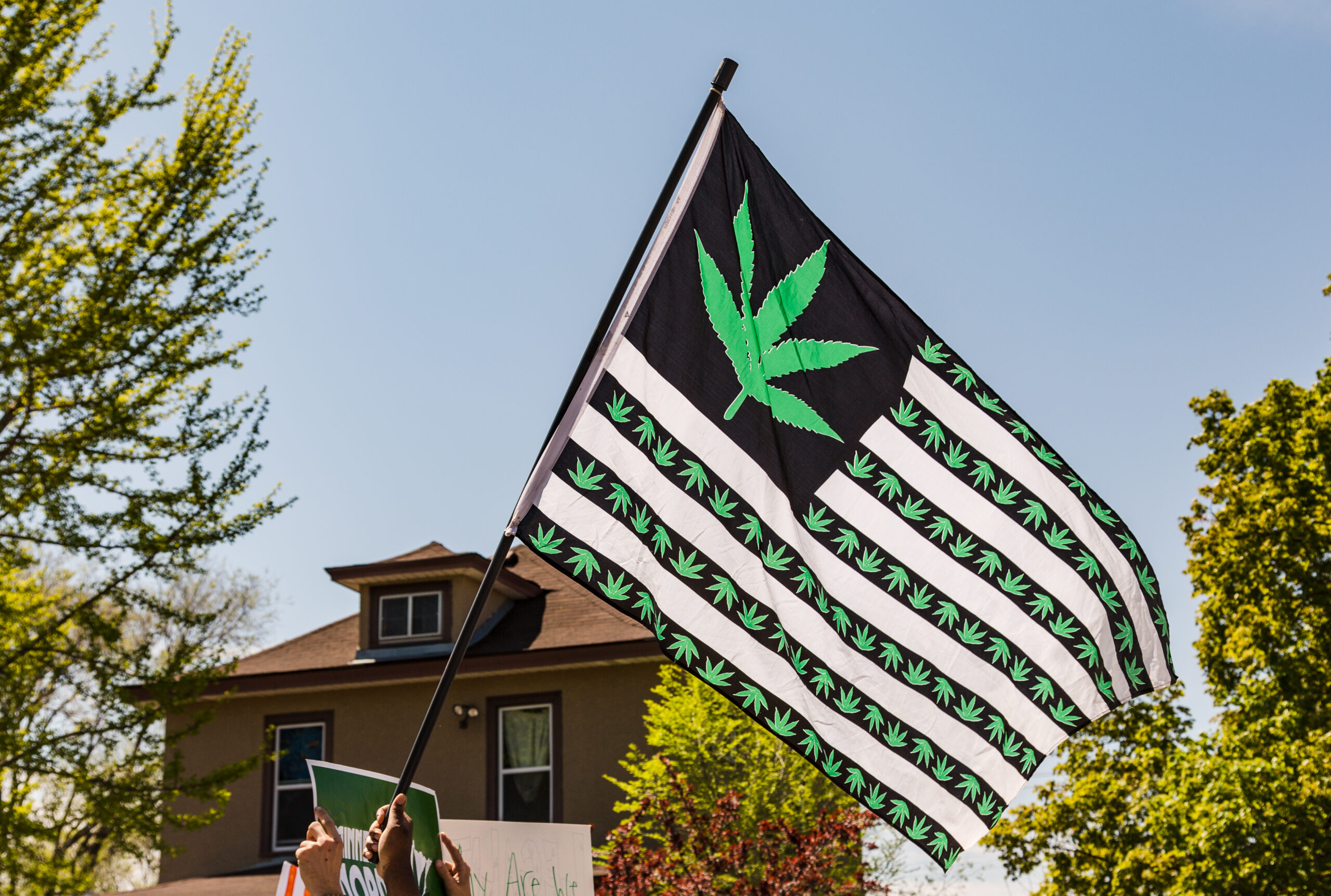The “October surprise” delivered by President Biden last week would have been hugely controversial a few years back, and immediately seized upon by a Democratic president’s right wing opponents as a fanning of the nation’s moral decay.
The 46th President delivered a pardon to all people with a non-violent conviction under federal marijuana laws. President Biden also set in motion a reconsideration of marijuana’s classification under federal law. Under present policy, absurdly, it is a Schedule 1 offense in the same category as heroin and LSD.
A POLITICO/Morning Consult poll found 65% approval for the pardon, with 40% of those surveyed in strong support. An even higher level of approval, 69%, greeted the prospective reclassification of cannabis. More than two thirds of those surveyed had heard a lot or something about the executive actions.
Once more, Washington, D.C., was catching up with Washington State.
A decade ago, with passage of Initiative 502, the Evergreen State became the first U.S. state to legalize recreational use of marijuana and the first to authorize recreational marijuana sales. Our legalization took effect three hours before weed became legal in Colorado.
The state’s vote to legalize was not defined as a social revolution, but rather a modest use of intelligence. Strong support came from the medical and legal communities. The rationale: Existing laws were widely ignored and enforcement unfairly and inequitably hit hardest at people of color, while legalization would take money from organized crime and put it in state coffers.
A moment of pride is in order.
Our state has acted in a sensible and humane way, backed by the public, at a time when such actions were still anathema to much of the country. Just recall the controversy, a few years back, when presidential candidate Bill Clinton fessed up to smoking marijuana (but tried the dodge “I didn’t inhale”).
A classic example of Washington out front was passage, in 1970, of Referendum 20 which – with conditions – legalized abortion. The vote preceded by three years the Roe vs. Wade decision of the U.S. Supreme Court.
Reason and empathy prevailed over closed-mindedness in the R‑20 vote.
The drive to legalize was spurred on by death of women in botched abortions, as well as injustice and inequality. Well-known clinics in Seattle served well-off women. Some women wishing to end pregnancies (e.g. future United States Representative Jolene Unsoeld) booked trips to Japan.
Opponents erected billboards showing a fetus and the slogan “Kill Referendum 20, Not Me.” A notorious Halloween prank saw someone climb up a University District billboard and spray paint: “Happy Mothers Day.”
Washington voted to strengthen protection of abortion rights in 1991.
The 2012 election saw Washington, with Maryland and Maine, be the first to legalize marriage equality by popular vote. Massachusetts was the first state where same-sex couples could wed, but by virtue of a state Supreme Court decision. Washington had its pioneering role, voting in 2009 to legalize domestic partnerships. Again, it seemed simply the sensible thing to do.
On the day marriage equality became legal, daylong weddings were performed at Seattle City Hall before elected leaders serving as officiants.
King County Superior Court (now Washington State Supreme Court) Judge Mary Yu officiated at the first wedding a minute past midnight. Seattle First Baptist Church welcomed a mass early evening ceremony.
In 2008, Washington followed Oregon in voting to legalize Death with Dignity. The chief backer of Initiative 1000 was ex-Governor Booth Gardner, who suffered from Parkinson’s Disease. The measure passed by a landslide with 57.8% of the vote.
What has put Washington in the forefront of progressive social change?
A belief in privacy, that the government should butt out of private decisions, is unusually strong here. Indeed, it was Yakima-raised U.S. Supreme Court Justice William O. Douglas who defined a general right to privacy in the 1966 Griswold v. Connecticut decision.
For the most part, Washington has been blessedly free of influential reactionary people and institutions. No powerful churches resisting the legalization of contraceptives. No preachers of discrimination like Jerry Falwell, Pat Robertson and Franklin Graham stigmatizing those with whom they disagree.
The Pacific Northwest was early in support of women’s rights. I grew up at a time when Washington, Oregon and Idaho sent four women to Congress.
At an early Seattle anti-Vietnam War protest, I listened to an aged Jeanette Rankin, the Montana congresswoman who voted against U.S. entry into both World War I and II. (Rankin was the sole vote against going to war in 1941.)
As well, we have a younger population here.
A big majority of millennials and Generation Z have jettisoned homophobia, long the most enduring of social prejudices. Young activists have been a driving force behind Washington’s three successful gun safety initiatives – particularly after the 2018 massacre at Parkland’s Marjory Stoneman Douglas High School — passed by voters in the face of inaction by Congress and the Washington State Legislature.
We’ve led the way, as well, in making it easier and more accessible to vote.
No wonder Wall Street Journal editorialists a while ago dubbed us the most dangerous corner of the country’s “Left Coast.” Where Washington leads, Washington, D.C., follows, as evidenced by President Biden’s big announcement on marijuana policy a full ten years after the approval of Initiative 502.

